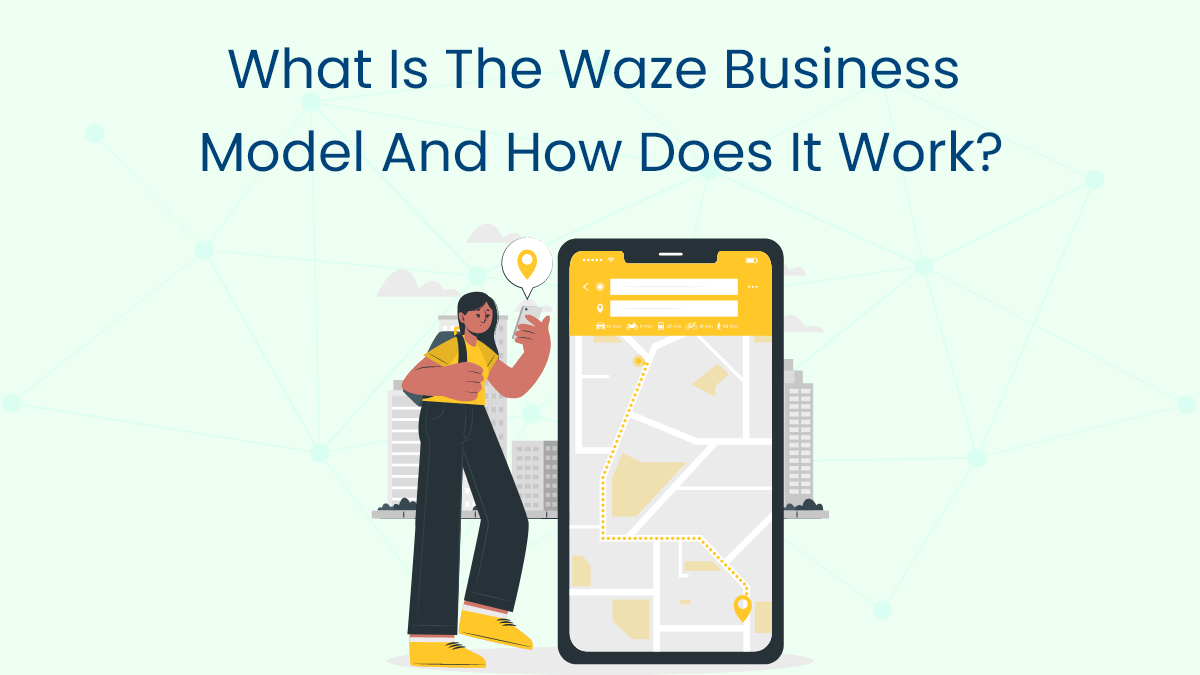What is the Waze Business Model and How Does It Work?

Waze, the popular GPS navigation app, has transformed the way people navigate and commute. Acquired by Google in 2013, Waze not only serves as a navigation tool but also has a robust business model that capitalizes on its unique features and vast user base. This article explores the Waze business model and how it operates to generate revenue while enhancing user experience.
Understanding the Waze Ecosystem
At its core, how Waze make money and functions as a community-driven navigation application. It leverages real-time data provided by its users—known as "Wazers"—to offer traffic updates, route suggestions, and alerts about road hazards. This user-generated data is what differentiates Waze from other navigation apps and forms the backbone of its business model.
Waze operates on three main pillars:
-
Community Engagement: The app thrives on user participation. Users contribute valuable information regarding traffic conditions, accidents, and road closures, helping other drivers navigate more effectively. This engagement fosters a sense of community, making users more likely to continue using the app.
-
Data Utilization: The vast amount of data collected from users is analyzed and used to improve app functionality. Waze can identify traffic patterns, peak travel times, and even potential route changes, enhancing the overall user experience.
-
Monetization Strategies: Waze employs various monetization strategies to generate revenue while keeping the app free for users.
Waze's Revenue Streams
Waze primarily generates revenue through advertising and partnerships, utilizing its unique position in the navigation ecosystem.
1. Waze Ads
Waze Ads is one of the main revenue-generating features of the app. This advertising platform allows businesses to create location-based ads that appear when users are navigating near their establishments. There are several types of ads available:
-
Branded Pins: These are map markers that display the location of a business. When users are nearby, they can see these pins, which can lead to increased foot traffic.
-
Promoted Search: When users search for a type of business (like "coffee shop"), Waze prioritizes sponsored listings, ensuring that these businesses gain visibility.
-
Zero-Speed Takeover: These ads appear when users are stationary, such as at traffic lights. They capture users' attention and can promote special offers or drive traffic to nearby locations.
2. Partnerships and Collaborations
Waze collaborates with various businesses and organizations to enhance its service offerings. For example, partnerships with local governments can help improve traffic management and provide valuable data insights. Businesses can also engage with Waze through sponsorships for events or promotions, further extending their reach to the app's user base.
3. Waze for Cities
Waze for Cities is an initiative aimed at improving urban mobility through collaboration with local governments. This program allows cities to access real-time traffic data and insights from Waze to better manage roadways, plan infrastructure projects, and enhance public safety. By providing this valuable data, Waze establishes itself as a key player in urban planning, creating a win-win situation for both the app and city officials.
User-Centric Approach
A key aspect of Waze's business model is its user-centric approach. The app remains free for users, which encourages widespread adoption. By offering a high-quality, community-driven service, Waze fosters loyalty among its users. This loyalty is critical, as it results in a larger user base that generates more data, further enhancing the app's functionality and appeal to advertisers.
The Role of Data Privacy
With Waze's extensive data collection comes the responsibility of maintaining user privacy. The app employs various measures to anonymize and aggregate data to protect individual user information. This commitment to data privacy is crucial for maintaining user trust and compliance with regulations.
Conclusion
The Waze business model effectively leverages community engagement, real-time data, and innovative advertising strategies to generate revenue while providing a valuable service to its users. By focusing on location-based advertising and partnerships, Waze has carved out a unique niche in the navigation landscape. As urban mobility continues to evolve, Waze's role as a data-driven platform will likely expand, offering even more opportunities for businesses and cities alike. Understanding this model is essential for businesses looking to harness the potential of Waze to enhance their visibility and drive customer engagement.
- Questions and Answers
- Opinion
- Motivational and Inspiring Story
- Technology
- Live and Let live
- Focus
- Geopolitics
- Military-Arms/Equipment
- Güvenlik
- Economy
- Beasts of Nations
- Machine Tools-The “Mother Industry”
- Art
- Causes
- Crafts
- Dance
- Drinks
- Film/Movie
- Fitness
- Food
- Oyunlar
- Gardening
- Health
- Home
- Literature
- Music
- Networking
- Other
- Party
- Religion
- Shopping
- Sports
- Theater
- Health and Wellness
- News
- Culture

